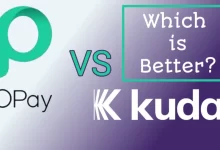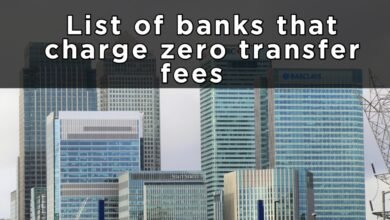Complete list of Ongoing nigerian federal government FGN and CBN loans and Grants for 2023
In the quest for economic development and growth, governments often utilize financial tools like loans and grants to bolster various sectors of their economy. Nigeria, as one of Africa’s largest economies, is no exception in this regard. In this post I will analyze the complete list of ongoing Nigerian federal government FGN and CBN loans and grants for 2023, outlining opportunities that are instrumental in driving the nation’s progress.
The Bank of Industry (BOI)
The Bank of Industry (BOI) spearheads the Nigerian government’s initiatives to provide essential financial support for entrepreneurs. Within this umbrella, three significant programs offer loans and grants:
1. Youth Entrepreneurship Support (YES) Program
The YES program is tailor-made for budding entrepreneurs, providing crucial financial backing to help kick-start and grow their businesses.
2. Graduate Entrepreneurship Fund (GEF) Program
For graduates with promising business ideas but lacking the necessary funds to begin, the GEF program offers a lifeline.
3. Cottage Agro Processing (CAP) Fund
Designed to support small-scale agro-processing enterprises, the CAP fund provides a much-needed financial boost.
Nigerian Export-Import Bank (NEXIM)
NEXIM, another prominent federal government agency, extends loans and grants to Nigerian businesses through various programs:
4. Export Stimulation Facility (ESF)
The ESF focuses on providing financial support to Nigerian exporters, stimulating growth in this vital sector.
5. Rediscounting and Refinancing Facility (RRF)
This program offers short-term funding to commercial banks, enabling them to facilitate lending to exporters.
6. Export Development Fund (EDF)
The EDF offers long-term financing for exporters, empowering them to expand their business horizons.
Nigerian Agricultural Insurance Corporation (NAIC)
NAIC, a federal government agency, delivers insurance coverage and financial support to farmers and agricultural stakeholders:
7. Loans and Grants for Agricultural Inputs
Farmers can access loans and grants to purchase agricultural inputs and equipment, boosting their productivity.
Small and Medium Enterprises Development Agency of Nigeria (SMEDAN)
The Central Bank of Nigeria (CBN) actively participates in this financial landscape by offering various financing programs:
8. Agricultural Credit Guarantee Scheme Fund (ACGSF)
The ACGSF supports farmers and stakeholders in the agricultural sector with loans and grants.
9. Commercial Agricultural Credit Scheme (CACS)
CACS provides credit to large-scale commercial agricultural enterprises, bolstering the agricultural industry.
10. Micro, Small, and Medium Enterprises Development Fund (MSMEDF)
This program offers loans and grants to micro, small, and medium-sized enterprises, nurturing the growth of these businesses.
Nigerian Youth Investment Fund (NYIF)
11. Nigerian Youth Investment Fund (NYIF)
This program, managed by the Federal Ministry of Youth and Sports Development, extends loans and grants to young Nigerian entrepreneurs aged 18 to 35. The financial support ranges from N250,000 to N5 million at a single-digit interest rate, accompanied by grants, training, and additional support.
Development Bank of Nigeria (DBN)
12. Development Bank of Nigeria (DBN)
As a federal government-owned development finance institution, DBN primarily supports micro, small, and medium-sized enterprises with loans for various purposes, including working capital, asset acquisition, and infrastructure development. Collaborating with commercial banks, microfinance institutions, and other financial organizations, DBN enhances access to finance for SMEs.
Export-Import Bank of Nigeria (NEXIM)
13. Export-Import Bank of Nigeria (NEXIM)
NEXIM, a federal government-owned development finance institution, facilitates Nigerian exporters with loans and guarantees through programs such as the Export Development Fund (EDF), Rediscounting and Refinancing Facility (RRF), and the Nigeria-Africa Trade and Investment Promotion Programme (NATIPP). EDF offers long-term financing, RRF provides short-term financing to commercial banks, and NATIPP promotes trade and investment between Nigeria and other African countries.
National Agricultural Seeds Council (NASC)
14. National Agricultural Seeds Council (NASC)
NASC, a federal government agency, plays a pivotal role in supporting farmers and seed companies in Nigeria. Funding is allocated for seed research, production, and certification, accompanied by training and technical support to enhance seed quality and crop yields.
Nigeria Incentive-Based Risk Sharing System for Agricultural Lending (NIRSAL)
15. Nigeria Incentive-Based Risk Sharing System for Agricultural Lending (NIRSAL)
NIRSAL, an institution owned by the CBN, offers credit guarantees, insurance, and technical assistance to agricultural value chain actors. Partnering with commercial banks, input providers, and other stakeholders, NIRSAL ensures increased access to finance for smallholder farmers and agribusinesses. The institution also conducts training and capacity-building programs to bolster the agricultural sector.
CBN Creative Industry Financing Initiative (CIFI)
16. CBN Creative Industry Financing Initiative (CIFI)
The CIFI program, administered by the CBN, is dedicated to fueling the growth of Nigeria’s creative industry. It offers loans at a single-digit interest rate to eligible businesses in creative sectors such as music, movies, and fashion. These funds support projects like movie production, music recording, and fashion design, fostering creativity and economic development.
RECOMMENDED: Get instant 50,000 Naira Loan
Conclusion
In conclusion, the Nigerian federal government and the CBN are actively involved in providing loans and grants across various sectors. The opportunities presented in this comprehensive guide can serve as a catalyst for growth, enabling individuals and businesses to contribute to Nigeria’s economic prosperity.
Frequently Asked Questions about Federal government grants in Nigeria
How can I apply for loans or grants from these programs?
Application procedures may vary between programs, but typically, you can visit the respective program’s website or contact the administering agency for detailed instructions.
Are these loans and grants available to all Nigerians?
Eligibility criteria vary from program to program. Some are designed for specific age groups, industries, or business sizes. It’s essential to review the specific requirements for each program.
What is the significance of these programs in Nigeria’s economic development?
These programs play a vital role in fostering entrepreneurship, agriculture, and creative industries, contributing to economic growth, job creation, and innovation.
Are there any deadlines for application or specific funding cycles?
Funding cycles and deadlines may vary, so it’s important to stay updated by regularly checking the respective program’s website or contacting the relevant agencies.
How can I ensure a successful application for these loans and grants?
Preparing a solid business plan, meeting eligibility criteria, and following the application guidelines meticulously can enhance your chances of success. Additionally, seeking professional advice or attending workshops on grant and loan applications can be beneficial.








